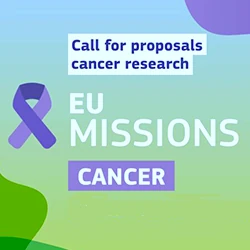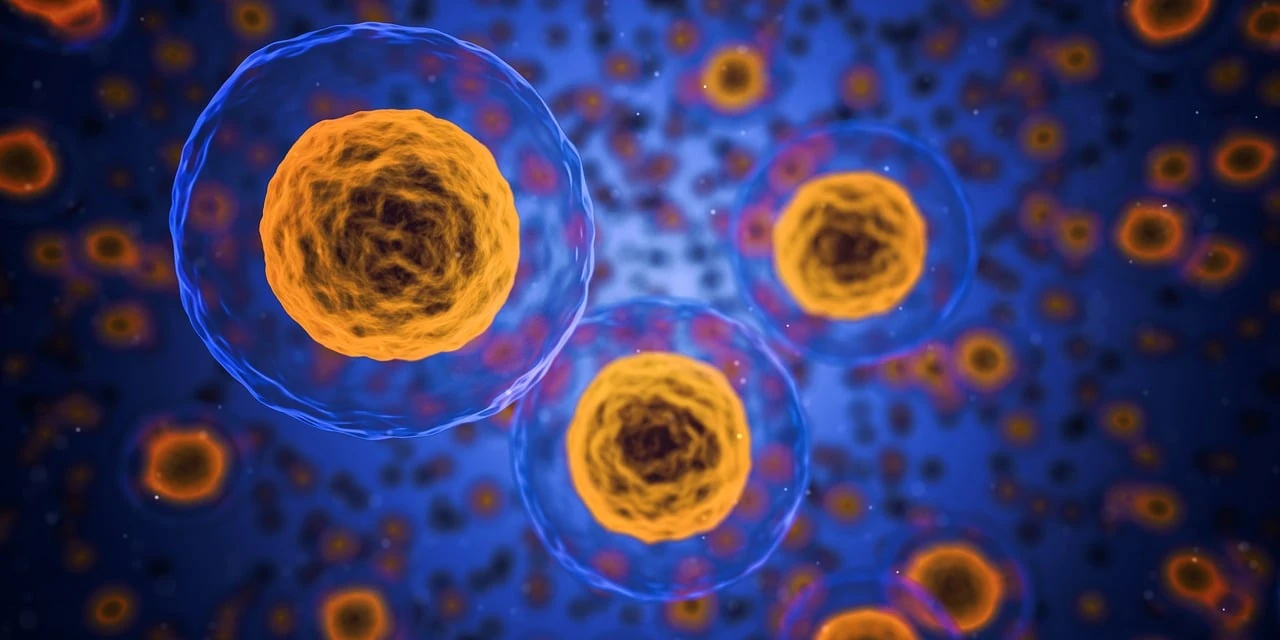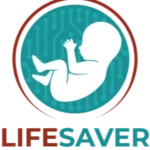Mission Cancer
Author
Christa Ivanova, PhD
Publication Date
March 18, 2024
Status
Keywords
early cancer detection
biomarker tests
EU missions
early diagnosis
clinical validation
cancer screening
accessible diagnostics
affordable tests
pilot testing
Your microfluidic SME partner for Horizon Europe
We take care of microfluidic engineering, work on valorization and optimize the proposal with you
What is the goal of Mission Cancer?

In the Horizon Europe (HE) program, the European Commission (EC) is placing a strong focus on prediction and prevention, with the aim to treat diseases before they even develop and ensure a healthy society reaching old age. Cancer is a major burden to society worldwide, with millions of people being diagnosed each year.
In many countries, cancer ranks the second most common cause of death following cardiovascular diseases. Cancer is best treated when detected as early as possible, before the development of symptoms. This is a difficult task, since markers of future disease have to be identified.
The call “Accessible and affordable tests to advance early detection of heritable cancers in European regions” from the Mission Cancer aims to advance the detection of cancer before its onset, by identifying potential targets (biomarkers, genetic and epigenetic markers, use of family history and large data sets) and developing cancer tests for early diagnosis that are easy to use and affordable.
A special focus is placed on the prediction of cancer in children, adolescents and young adults, since these groups of society have to live longest with the consequences of aggressive cancer treatments. If you are planning to submit a proposal, the MIC can support you with your application!
What can the MIC bring to your Mission Cancer consortium?

The MIC (formerly the Elvesys Innovation Unit) is a French SME with extensive expertise in the design and construction of microfluidic flow control systems in the scope of collaborative projects under Horizon Europe (previously H2020).
Besides our year-long experience in writing, managing and communicating on Horizon Europe projects, and depending on the project and the planned experiments, we can develop different setups for Mission Cancer projects, for example, predictive cancer tests based on biomarkers, genetic mutations or cell morphology. On eexample of an ongoing project is Tumor-LN-oC, in which the MIC develops a system for the co-cultivation of tumor cells and lymphatic tissue with the aim to study cell migration in metastasis.
We mainly focus on the development of microfluidic flow control instruments (actuators, flow sensors, pumps and connections), but we have a broad network of collaborators throughout Europe that are specialized on microfluidic chip microfabrication, bioreactors, sensors and electrode embedding. If you need any further expertise for your Mission Cancer consortium, just let us know!
Why you should use microfluidics for your project:
We can help you develop:
- CTC (circulating tumor cells) isolation from blood samples, or of circulating cancer stem cells in liquid biopsies.
- Biomarker-based cancer tests: screening for known biomarkers or for potential new candidates (for example, based on ELISA technology) is part of Mission Cancer.
- Development of multi-omics cancer tests, by use of genetic markers (RNAseq, PCR or epigenetics), on highly parallelized microfluidic chips.
- Automated cell perfusion, 3D-cell culture and organoids, for the modeling of cancer development and the identification of novel (bio-)markers.

The MIC and European joint projects
We already bring our expertise in more then 50 EU projects and will be glad to work with you! Besides Mission Cancer, we are particularly interested in the following calls but remain open to any collaboration!
Download the MIC Horizon Europe 2025 Calls Calendar:
The MIC already brings its expertise in microfluidics to Horizon Europe:
H2020-NMBP-TR-IND-2020

Microfluidic platform to study the interaction of cancer cells with lymphatic tissue
H2020-LC-GD-2020-3

Toxicology assessment of pharmaceutical products on a placenta-on-chip model
FAQ - Mission Cancer
Q1. What does “heritable cancer” mean in this context?
Take inherited genetic changes linked to higher cancer chances – like BRCA1/2 tied to breast and ovarian types, or MLH1 and others behind Lynch syndrome affecting colon and uterus. Also in the mix: TP53 with Li-Fraumeni, APC involved in FAP, plus RET playing a role in MEN2. Focus isn’t just spotting those who carry these genes sooner; it’s also about detecting signs of disease before symptoms appear. The tools being explored are less intrusive, aiming to catch abnormalities at their earliest stage. Clear medical routes follow once something shows up.
Q2. How does this align with the EU Mission on Cancer?
Around 2030, the focus lands on tangible progress – especially catching issues earlier. Efforts combining inherited patterns, genetic scores, daily habits, precise tests, and actual use in clinics fit neatly into what the Mission pushes: try, learn, expand. Involvement isn’t limited to doctors or labs; people, health systems, and data hubs all play parts by design. These setups aren’t add-ons – they’re built-in.
Q3. Which project types and funding rates should we expect?
A typical pattern shows mechanistic work leaning toward full support under RIAs – every dollar covered. When it comes to integrating into real-world clinics, funding shifts: nonprofits still get full backing through IAs, though for-profits see that drop to 70%. Coordination tasks, shaping shared data rules, and growing team strength often fall under CSAs, each fully funded across the board. A quarter of eligible direct expenses covers indirect costs, set at a fixed rate. Starting frequently between levels three and four, TRL paths usually push toward six or seven by project close.
Q4. What counts as a convincing “early detection” approach for heritable cancers?
A test could work if it catches real cases when they’re rare. Specificity matters – too many false alarms lead to pointless follow-ups. It also needs to fit into clinics or broad screening without slowing things down. Options? Maybe focused cfDNA tests, patterns in DNA methylation, rogue cancer cells floating in blood, odd RNA processing signals, blended protein assays, or liquid biopsies combined with scans. What ties them together isn’t the tech – it’s whether a clear plan, tested ahead of time, actually does better than what we do now.
Q5. What metrics should proposals pre-declare?
What matters most? Hard cutoffs tend to outperform stories built around them. Think sensitivity and specificity – always paired with precise 95% confidence intervals. Predictive values shift depending on context, so they’re best reported at expected disease rates: say, between 5% and 10% in specialized settings, under 1% when scanning broad populations. How fast results arrive plays a role. So does how often tests fail – track that as errors per hundred attempts. Another checkpoint: the share of individuals flagged as carriers who actually enter monitoring or preventive pathways. Economic angles count too, as spending per year lived without disability – or per late-stage tumor avoided. Yet performance isn’t just clinical. Take-up by providers, adherence to protocols, and patients returning for follow-ups – these shape real-world impact just as much as any ROC curve summary.
Q6. How big should cohorts and pilots be?
Usually, achieving a 90% detection rate within a 5% range requires about 140 confirmed cases. When disease is rare, does that mean pulling data from multiple centers or focusing on high-yield groups to hit over 95% specificity with just a 1% swing? That typically demands thousands of unaffected samples. Because of these hurdles, research networks tend to mix past stored samples – for initial findings – with newly gathered, approved participant pools – to confirm results – alongside real-world testing tracked under IVDR rules.
Q7. What about regulation and compliance (IVDR, ethics, data)?
Starting fresh isn’t always necessary – what matters is how a test fits real-world medical choices under EU 2017/746. Early prep should focus on measuring accuracy (LoD), consistency across ranges, and repeatability. Performance in practice depends on sensitivity and specificity within the group for which it’s intended. Pulling together solid proof means combining results logically and transparently and handling personal health details? Stick to GDPR basics: collect only what’s needed, control where data travels, especially with genetic info. Thinking ethically involves planning for family-wide implications when one result affects others. Unexpected discoveries need clear handling strategies. Permission to reach out again later shouldn’t be an afterthought.
Q8. Where does microfluidics actually help here?
Running tests on tiny fluid volumes lets machines handle both sample preparation and result reading – no lengthy manual steps. Small amounts of blood go a long way when isolation occurs in micro-litres, streamlining the detection of early signs. Droplets act like mini test tubes, spotting rare DNA changes more reliably than bulk methods. Individual cells are gently trapped, preserving fragile clues that float in circulation. Antibody-coated surfaces grab specific particles, whether whole tumour cells or small bubbles called exosomes. Chemical tags reveal gene activity patterns without amplifying background noise. Automation keeps procedures stable across different labs. Less operator input means fewer differences between sites. Multi-site trials benefit quietly – results stay comparable even when locations change.
Q9. What does the Microfluidics Innovation Center (MIC) contribute to such projects?
A single drop of blood might start the process – custom microfluidic chips take shape soon after, shaped by precise needs rather than generic templates. Pumps, valves, and sensors fold into the system without relying on standard integration paths. Automation guides each assay from raw sample to final output, whether that’s detecting genetic variants, analyzing methylation patterns, or profiling protein levels. When working within Mission Cancer initiatives, early discussions about patient goals often shift quickly toward engineering targets. Initial prototypes emerge rapidly, tested under real-world conditions before being refined for use across several trial locations. Data quality remains central; outputs align with IVDR expectations simply because consistency is built in from the beginning. Being part of various Horizon Europe collaborations means contributing beyond hardware – shaping project timelines, defining progress milestones, and mapping uncertainties alongside partners. Past involvement shows a noticeable trend: outcomes tend to succeed at nearly twice the average rate reported for similar topics.
Q10. What does a realistic 36-month plan look like?
Begins with testing how well the test works – measuring sensitivity and consistency – all while early versions of the device take shape during half a year. After that, algorithms learn patterns from past cases; patients are followed forward in time; results are checked at another center to see if they hold up. Around halfway through, hospitals join in to check real-world accuracy, costs begin to be mapped out, and hands-on feedback rolls in from medical staff using it in daily routines. The final stretch focuses on preparing systems for broader use: clear procedures, learning materials, steps toward EU certification, and planning for what comes after launch.
Q11. Which KPIs matter most for heritable cancer detection?
What matters isn’t just how sensitive or specific a test is. Earlier detection – when intervention becomes possible – carries more weight. The clock starts ticking once a screening flag goes up: how fast does it lead to a confirmed diagnosis? Equally telling is whether family members at risk are actually reached and tested, showing how well the follow-up system works. Not everyone who tests positive takes the next step – tracking how many enter monitoring or preventive care reveals real-world adoption. Some samples don’t make it through processing intact – failures, repeats, delays hint at hidden flaws. Plasma degrading before analysis, shipment hiccups, and lab inconsistencies – all can skew outcomes. When labs run the same case across different sites, variability emerges, often in subtle shifts that few notice. Machines need to stay online without constant fixes. Even minor calibration slips pile up over time. Then there’s cost – not total price, but what each usable result truly demands in resources.
Q12. Common pitfalls that sink proposals – and how to avoid them?
A single idea, echoed four times. First: a bright finding that doesn’t quite work in practice – anchor it with clear go/no-go lines before testing begins. Next: validation efforts fall short because they’re underfunded or poorly scaled – plan sample sizes honestly, bring sites aboard sooner. Then: confusion creeps in before analysis even starts – standardize every step from blood draw to shipping, use automated systems where possible. Lastly, regulatory demands like IVDR are treated too late – start aligning each task with safety and performance criteria right at launch.
Q13. How do Living Labs fit into cancer-detection projects?
A genetics clinic can turn into a real-world testing ground where patients help shape how things run. By trying out new steps right on site, teams see what works through actual use – not just theory. Quick rounds of build-test-learn highlight hiccups early, especially around consent or sharing results. These cycles move fast: draft an idea, get reactions, then adjust in the field. Problems like data handling or timing pop up before big studies begin. With focused design and smart engineering, changes stay practical, grounded, and swift.
Q14. Any benchmarks or references we should keep in mind?
A starting point? Think about real-world data on how often BRCA1/2 or Lynch mutations actually lead to disease – those figures come from broad population research. Frameworks assessing cancer screening quality, such as those developed by EUnetHTA, also offer grounding. Then there’s what IVDR spells out across its thirteen annexes: clear bars for proving clinical validity. Shift focus to patterns observed in practice: specialized clinics spot inherited syndromes in roughly 1 in 20 patients. Outcomes differ sharply when testing people without symptoms – the rate drops well under one percent. These differences shape predictions about false alarms and detection rates. They matter just as much when deciding how many individuals a study needs.
Q15. What should we prepare before contacting MIC?
A single page laying out the condition under focus, who it’s meant for, how well it should work – including minimum benchmarks – along with proposed locations and tissue banks involved, plus identifiers or anticipated results. In return, expect a setup outline, clarity on who does what, a schedule marked by decision checkpoints, and tools chosen to minimize differences across centers.
